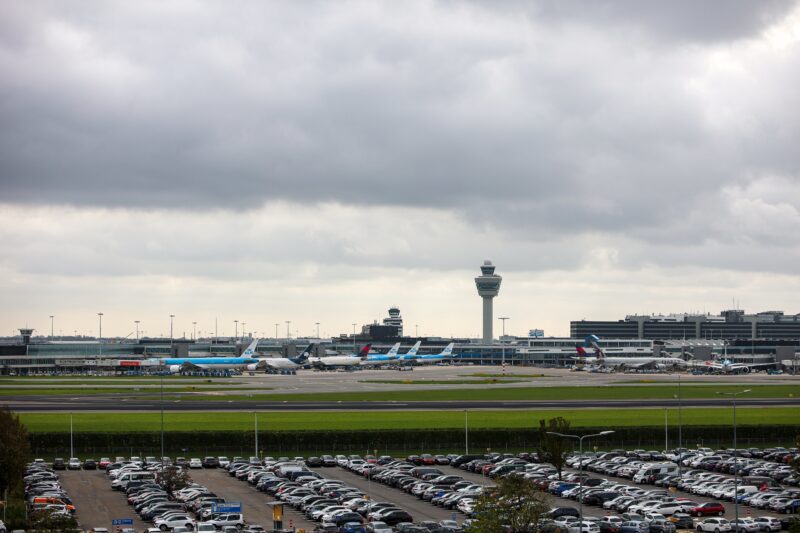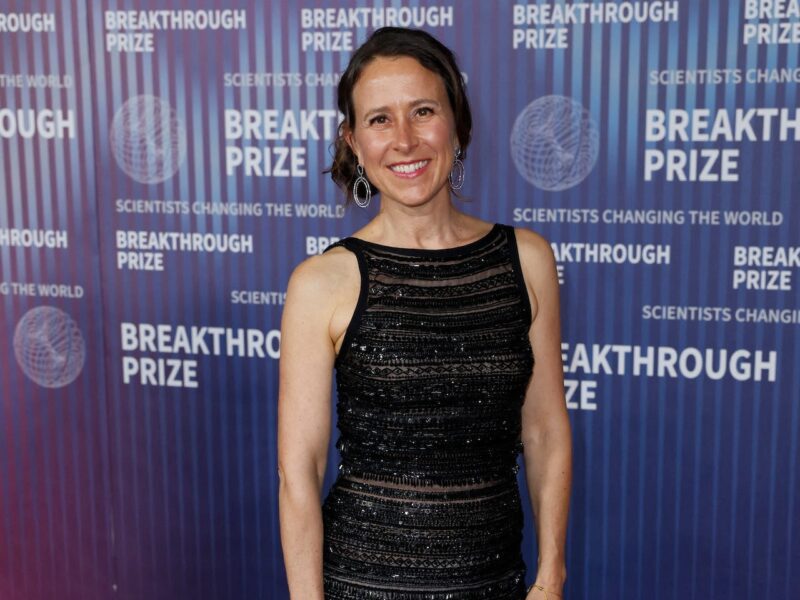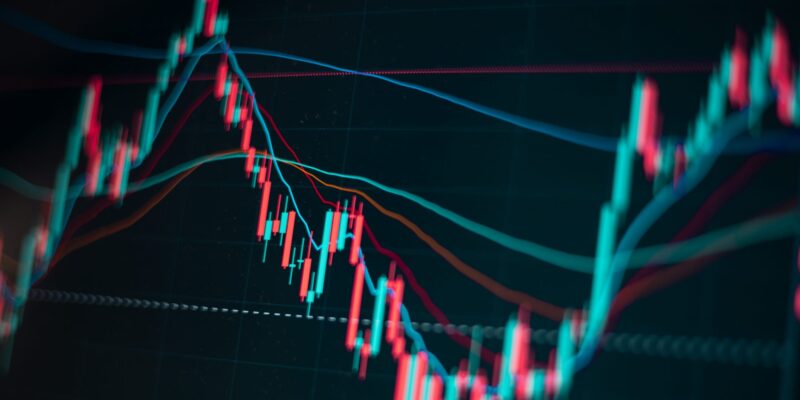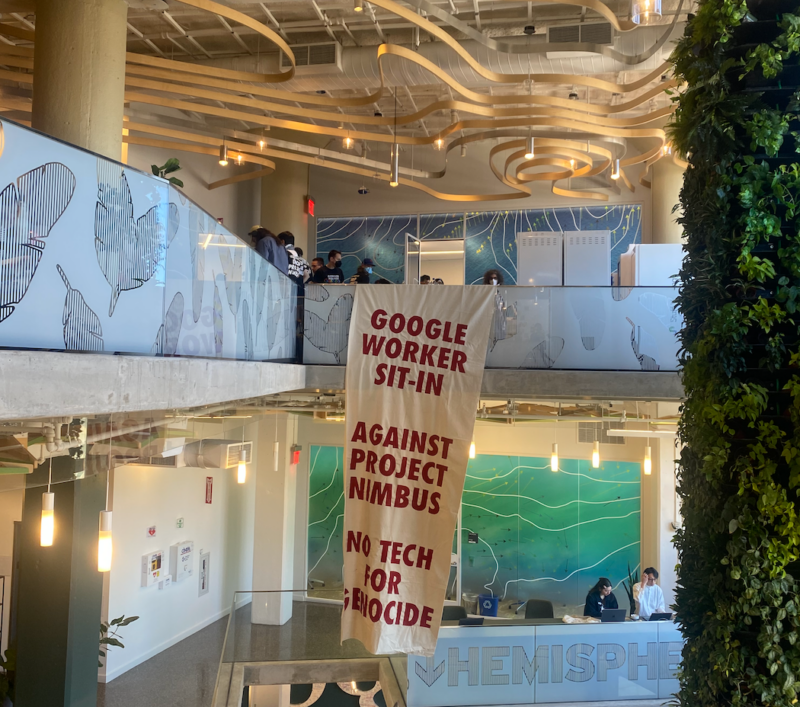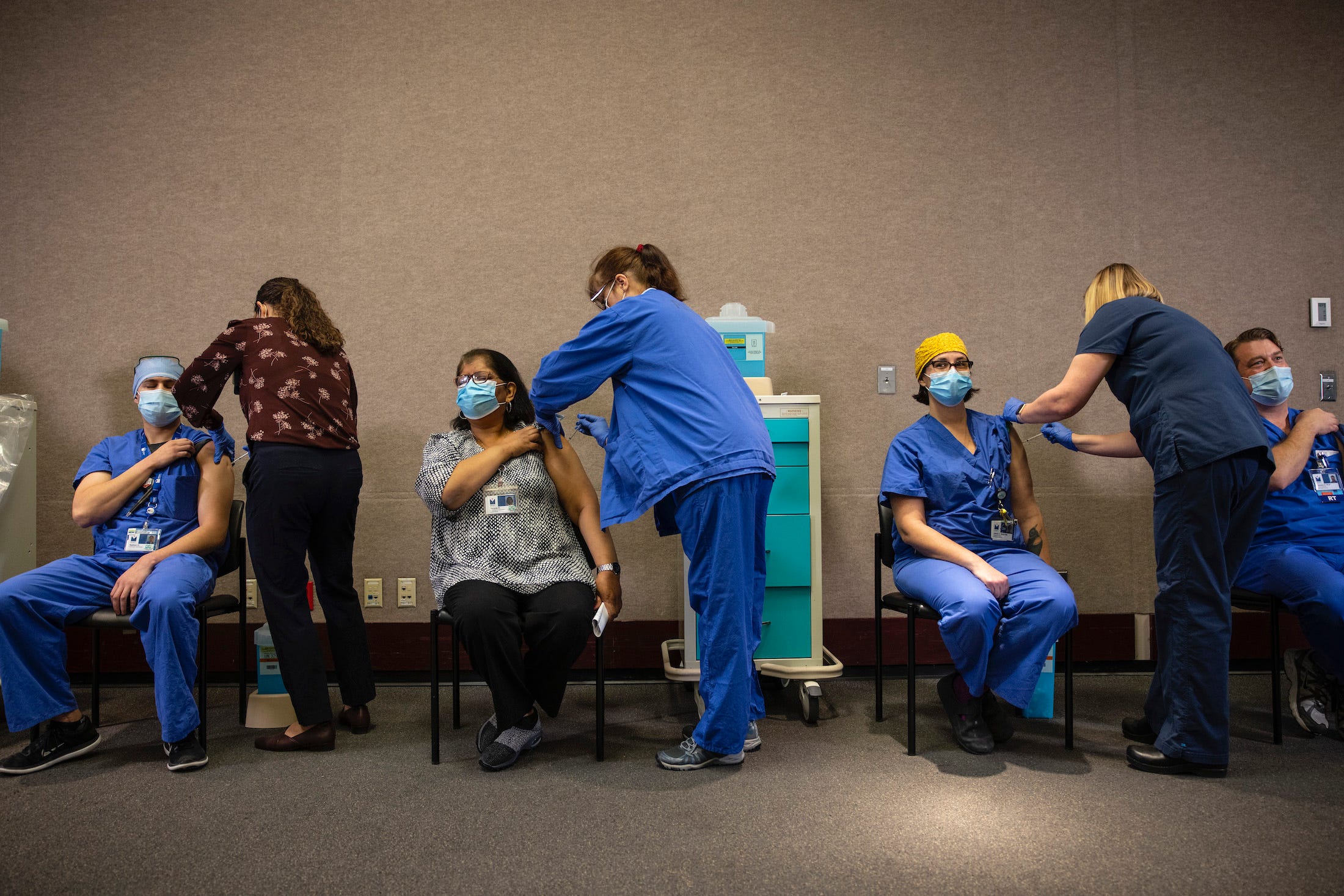
Paula Bronstein/Getty Images
- A former Obama official on Monday discussed the impact more-contagious virus variants might have.
- The official, Dr. Kavita Patel, said people might require booster shots every few years.
- “We all suspected that this would not be our only set of shots,” she said.
- Visit Business Insider’s homepage for more stories.
People may need additional COVID-19 vaccinations or booster shots depending on the spread of more-infectious coronavirus variants, according to a former official in the Obama administration.
In an interview with CNBC on Monday, Dr. Kavita Patel, who worked as director of policy for the Office of Intergovernmental Affairs and Public Engagement, said the number of COVID-19 vaccines or booster doses people would need “depends on what we see with these strains and how much they escape the immune system.”
So far, three coronavirus variants – found in the UK, South Africa, and Brazil – have triggered huge outbreaks and a surge in cases in those countries. The variant first identified in the UK is more contagious, and potentially more deadly, than the original virus strain and has been found in more than a dozen US states.
The first known US case of the variant found in Brazil was reported in Minnesota on Monday.
The variant first found in South Africa has been shown in early lab studies to sometimes avoid antibodies, produced by the body to fight off infection. It has not yet been found in the US.
Read more: 12 sources of emergency funding for businesses available right now
Patel, a physician in Washington, DC, said "we all suspected that this would not be our only set of shots, whatever we're receiving this year."
"I think it points to at least, potentially, something every several years or a booster," she said.
But Patel said the worst of the pandemic was hopefully behind us, adding that hospitalizations, deaths, and positive test rates were coming down.
"It looks like we've kind of gone past the crest or that peak of that postholiday surge that we were really worried about," she said. "Could we see something more dire soon to come? Very low likelihood given the fact that we do have two incredibly effective vaccines available."
Patel also pointed to the vaccine manufacturers Johnson & Johnson and Novavax, which she said would "hopefully add to our armament of vaccine technology."
The US pharmaceutical giant Merck, however, on Monday said it had stopped developing two COVID-19 vaccines because they failed to generate a strong immune response.
Patel said that the announcement didn't come as a surprise and that the drug company's withdrawal wouldn't have a significant impact.
But Patel warned that vaccine supplies could become "constrained" if the US didn't authorize Johnson & Johnson and Novavax's vaccines in the coming months.
More than 25.3 million Americans have been infected with the novel coronavirus, and more than 420,000 have died from it, according to The New York Times' coronavirus tracker.






